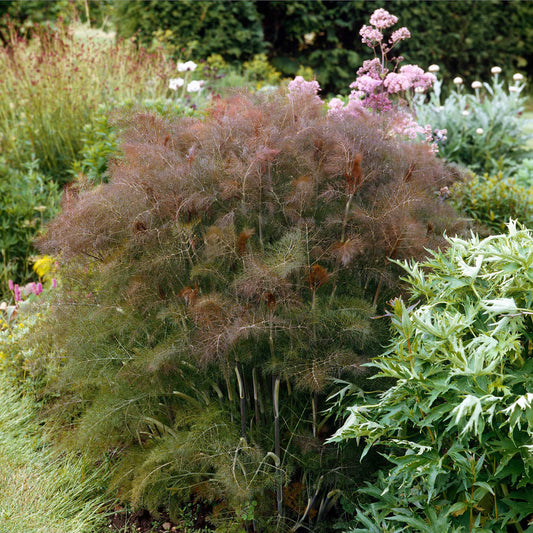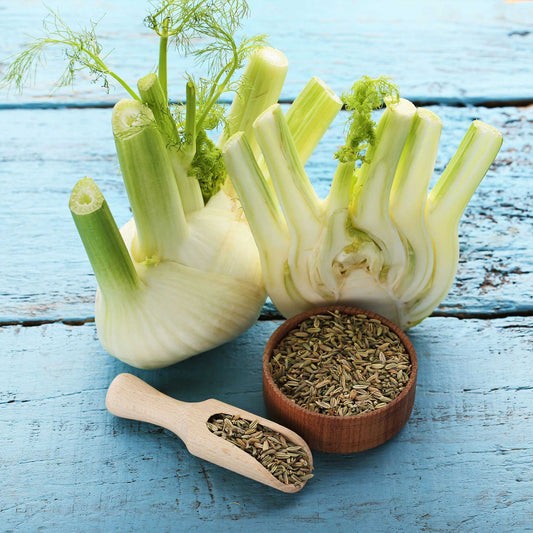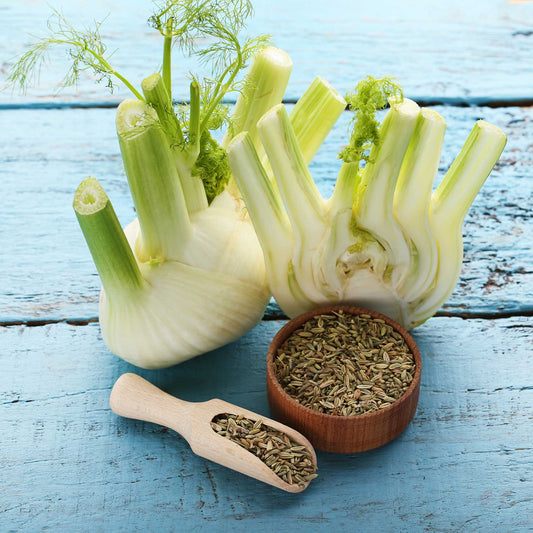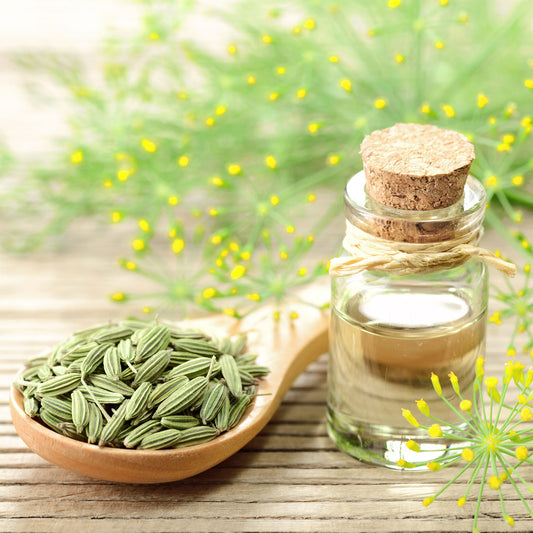-
main-collection-product-grid

Fennel Seeds - Smokey Bronze
Add to main dishes, side dishes, sauces, and teasFennel Seeds - Smokey Bronze
Add to main dishes, side dishes, sauces, and teasRegular price $5.49Regular priceUnit price per -
main-collection-product-grid

Fennel Seeds - Florence
Boasts a mild anise-like flavor; all parts of this herb are edibleFennel Seeds - Florence
Boasts a mild anise-like flavor; all parts of this herb are edibleRegular price As Low As $4.99Regular priceUnit price per -
main-collection-product-grid

Fennel Seeds (Organic) - Florence
Sweet and aromatic, edible from seed to bulbSaleFennel Seeds (Organic) - Florence
Sweet and aromatic, edible from seed to bulbRegular price As Low As $6.99Regular priceUnit price per$26.99Sale price As Low As $6.99Sale -
main-collection-product-grid

Fennel Seeds
Distinctly licorice taste with many culinary usesFennel Seeds
Distinctly licorice taste with many culinary usesRegular price As Low As $4.99Regular priceUnit price per
Growing fennel seeds in your garden
- Thrives in bright, sunny growing areas
- Fennel offers both culinary and medicinal uses
- High in fiber, potassium, folate. Known to support heart health.
- With a mild aniseed flavor, fennel can be used in a variety of cuisines.
Fennel is a popular plant with many diverse uses
Fennel is one of the oldest cultivated plants and much valued by the ancient Romans, Greeks, and currently used in modern day Mediterranean cuisine and beyond. The foliage, fruits, and bulb of the fennel plant are all used in many cuisines and culinary traditions around the world. It is one of the most important spices in Kashmiri cuisine, and an essential ingredient in various spice mixtures. Fennel is one of the primary flavors in Italian sausage. It's also used for herbal tea, toothpaste, licorice powder, and more!
What part of fennel can you eat?
Every part of fennel is edible, from the bulb to the flowers. Raw fennel has a texture that is similar to celery, with a licorice flavor that is perfect for bright salads. When cooked, fennel tales on a sweeter flavor as it softens and caramelizes. If you are ready to try fennel at home, the bulb can be prepared by sauteeing, braising, grillling, or eating raw. Basically, treat it like a vegetable.
Fennel is not only tasty, but nutritious and easy to plant!
Bonus! Not only is fennel incredibly versatile and delicious, but it's also full of nutrients. It's high in dietary fiber, vitamin C and potassium, just to name a few.
To plant fennel seeds, select an area with moist, well-draining soil and full sun. Fennel can inhibit the growth of beans and tomatoes, so do not plant them near one another. A day or two before planting, soak the fennel seeds in water for better germination. Direct sow the seeds in rows about 10 to 12 inches apart, spacing 13 inches between rows. Seeds typically germinate in about one to two weeks. Once the seedlings reach about six inches in height thin them out to a spacing of 12 to 18 inches.
A note about harvesting fennel
Though the plant can produce seeds as well as a vegetable, you can't get both from each individual plant. You have to harvest the bulb before the plant goes to seed. So if you want to use your fennel for all its uses, you'll need to grow a few plants to take advantage of its versatility.
For more information about planting, growing, and caring for fennel seeds, see the Fennel Seed Planting Guide.



